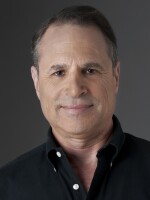The vast majority of the Phoenix metropolitan area — 90 percent — was built after 1950. It's been a pell-mell push for growth. But like many places, that growth came to a screeching halt during the recession.
In the suburb of Maricopa, Ariz., the population grew from 1,000 to 45,000 residents over the past decade. In 2007, the city was processing 700 building permits a month. But then the economy soured.
"We reduced that to 300 and then ... we set our budget last year at 100," says Maricopa Mayor Anthony Smith. "Well, 100 was too many. So now we've set our budget for 30 new building permits each month."
Housing Surplus
There's a large inventory of homes on the market in the Phoenix metropolitan area. The Salter family — Thad, Laura and their sons, Isaiah and Isaac — moved to Maricopa three years ago, from San Jose, Calif. They paid more than $300,000 for their home. It's now worth about half that.
Thad Salter says more than half of the 22 homes on his block have been foreclosed on: "My block got devastated. My next door neighbor's no longer my next door neighbor. And I've seen houses across the street from me going down the block on my side of the street just turn over."
The good news is the homes did turn over. All but two resold — albeit at much lower prices. The Salters have been trying to refinance their mortgage at a lower interest rate for two years and are just now getting their lender, Chase Bank, to come to terms. Still, they are glad they moved.
"You know, my kids love it here. I have family here. I have some good friends here," Salter says.
Lost Construction Jobs
But the pause button has been pushed in Phoenix when it comes to new construction.
Grady Gammage Jr., an attorney and a real estate developer, spends a lot of time thinking about his native Phoenix's future. He says the pause should make the Phoenix area take stock.
"We're now big enough that maybe continuing to operate on a boom and bust cycle as a sort of Wild West frontier town is no longer the right formula, and we ought to try to diversify our economy a little more," he says.
One-third of the jobs lost statewide — 100,000 out of 300,000 — have been in construction. Gammage says it's time for Phoenix to create employment that can sustain itself through good times and bad. A solar energy industry is one idea for alternative employment given the abundance of sunshine.
Create Urban Density, Not Sprawl
Instead of the sprawl Phoenix is known for, many local architects and urban planners want more density. Urban nodes, they call them — where working and living can be done close to each other. Phoenix has expanded its downtown business core in recent years — but as in other Western cities, it largely rolls up at night when people drive home to the suburbs.
The car is king here. For years it has been the only way to get around. But in December, Phoenix opened its first light-rail system. Two lines connect downtown with outlying areas. Ridership was up to 1 million people a month at one point.
The recently minted town of Maricopa just started running a bus line to transport workers and others the 35 miles to downtown Phoenix. These are welcome drops in the bucket for most planners and are signs that Phoenix is beginning to grow up.
Real Estate Still In The Picture
But nearly everyone knows the real money here is still invested in real estate, as it always has been. Lee McPheters, a research economist at Arizona State University, says he sees another growth phase starting in three to five years.
"Will that growth look a whole lot different from what we've seen before? I really don't think so," he says.
Even Gammage, the real estate developer, agrees.
"I don't think anyone in Phoenix, even those of us who would like to see a more diversified economy — even those of us who have lived off real estate and don't have a lot to do at the moment — think that the Phoenix phenomenon is done," he says.
To compare Phoenix to a person, it's a college freshmen recovering from a weekend of binge drinking. And it's likely to head out again next weekend.
Copyright 2022 NPR. To see more, visit https://www.npr.org. 9(MDAzMjM2NDYzMDEyMzc1Njk5NjAxNzY3OQ001))






